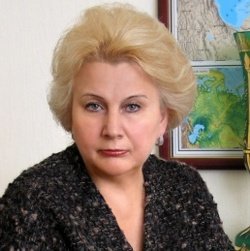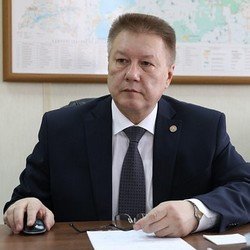Who to blame for rise in egg price — greedy producers or manipulative retailers?
Difference between the cost of a dozen eggs and the procurement price in Tatarstan is 6 rubles. And it is not in favour of farmers
A wave of publications has swept the federal media that chicken eggs are going to disappear from stores by the end of the year. According to Russian business and specialised agro-industrial publications, the critical situation is fuelled by that retail chains have begun to buy eggs at low wholesale prices, which do not cover the cost of production and drive poultry farms into losses. Are Tatarstan agricultural producers suffering losses? The ministry of agriculture and food of the republic told Realnoe Vremya that over the past two months the wholesale prices have actually fallen by almost 30% — to 46-47 rubles at a cost of 52 rubles. At the same time, the “price tag” on the shelf, on the contrary, has increased to 80 and even 90 rubles.
Prices for chicken eggs were not “frozen”
The “egg” wars, which have caused a price conflict between Russian agricultural producers and retailers, unexpectedly turned out to be in the limelight of federal authorities.
Formally, chicken egg was not included in the list of food products the retail prices of which were taken under state regulation. Prices were frozen only for sugar, sunflower oil, and somewhere for bread of “social varieties”. And if they meet the price set by the state, they receive subsidies from the federal budget. For example, if a sugar factory ships products at a wholesale price of no more than 36 rubles, and a retail chain sells it for no more than 46 rubles, then the manufacturer is paid a subsidy to compensate for losses — 5 rubles per 1 kg.
The “gentlemen's agreements” with the state are valid from April 1 to September 30, 2021. But the prices of eggs seem to have not been touched, and they are growing precipitously in stores — according to analysts of Realnoe Vremya, they have added more than 36% year-on-year in 5 retail chains. Rosstat, having more extensive information, is increasing this percentage almost twofold.
But one shouldn't reproach greedy poultry farms that they are profiting from consumer grief. This year, they have faced an unusual way of lowering wholesale prices — through the mechanism of competitive purchases, without any compensation or subsidies.
How subsidies were replaced by tenders
Since this year, retailers have started to practice electronic tenders to select suppliers for the wholesale purchase of eggs. According to their rules, the winner is the one who provides the maximum reduction in the purchase price. A contract for the supply at a fixed price is signed with the winner.

Price drop in tenders may be even lower. “The prices for the purchase of eggs at electronic tenders with delivery dates in the first half of June decreased even to the level of 27-29 rubles per dozen," Artur Kholdoenko, the director general of Sinyavinskaya poultry farm, said in the interview with Vedomosti.
We couldn't get information whether Tatarstan poultry farms participate in electronic tenders. Neither the management company KOMOS Group (the poultry farms Derzhavinskaya, Varaksino), nor Yaratel (controlled by Ak Bars Holding), nor the poultry farm Akashevo did not want to talk about this topic.

At the same time, the director general of Rosptitsesoyuz, Galina Bobyleva, noted that the costs of egg producers this year have seriously increased:
“The cost of poultry production has increased by 20-25% on average over the past year due to the rise in the price of grain, feed supplements, hatching eggs, packaging...”
Egg cost in Tatarstan is 52 rubles, but they sell it for 47
The ministry of agriculture and food of Tatarstan confirmed to Realnoe Vremya that the costs of Tatarstan egg producers have increased by 30% over the past year.
“The cost of eggs produced, according to enterprises, is about 52 rubles — this is by 30% higher than last year," said the press service of the ministry of agriculture and food of the Republic of Tatarstan. “Manufacturers attribute this increase in the cost of production to an increase in prices for feed components, feed supplements, and sunflower oil, as well as to an increase in packaging prices.”
Under these conditions, it is hardly easy for egg producers in Tatarstan to participate in electronic bidding. Since the beginning of the year, purchase prices in the republic have fallen by an average of 20%.
“According to wholesale and selling prices, the average prices for eggs of the first category today are 47 rubles per dozen," the press service of the ministry of agriculture and food of the Republic of Tatarstan told. “For an egg of the second category — 46,09 rubles per ten.”
The change in wholesale and selling prices over 2 months of the current year for producers was the following: minus 19 rubles for eggs of the first category without VAT (or 29%) and minus 18,4 rubles for eggs of the second category without VAT (or 28,5%). Thus, at the cost of egg production of 52 rubles per dozen, Tatarstan poultry farms sell them at 46-47 rubles. The department does not comment on whether the difference of 4-5 rubles per dozen can lead to capital losses.
“The price of chicken eggs has fallen significantly recently. Indeed, there was the highest price, certain decisions were made, and tenders fell to 40 rubles," said Deputy Minister of Industry and Trade Viktor Yevtukhov, speaking at the Week of Russian Retail. “I was only so happy when the White Beam was found. Such happiness! That's just a misfortune for the agro-industrial complex," he admitted.
Who “ate up” the margin
Realnoe Vremya sent requests to major retailers. The press service of Lenta retail chain reported that they did not practice bidding — they prefer direct contracts.
“Lenta purchases eggs under direct contracts with suppliers and does not purchase these products at auction. In May, we recorded a decrease in the price of eggs by about 10-15 per cent compared to April, when Easter was celebrated. However, the prices are higher than a year ago," said the press service of the retailer. According to them, shelf prices were falling following the decline in prices from suppliers with whom contracts have already been concluded on a long-term basis. They did not name their suppliers in Lenta, but on the website of the trading network one can see that the products of Yaratel and KOMOS Group are sold there.”
Meanwhile, agricultural producers point out that the effect of reducing the wholesale price goes to the seller, not the buyer. After all, the “price tag” on the shelf, on the contrary, has grown — to 79-90 rubles for a dozen. According to the ministry of agriculture and food of the Republic of Tatarstan, the average retail price of an egg in Tatarstan has increased to 77,5 rubles per dozen.
“According to official statistics, the price of a table chicken egg in the republic is 77,5 rubles per dozen," the press service of the ministry reported. Thus, almost 30 rubles from the retail price goes somewhere. Many believe that to the pocket of the seller.
Egg production in Tatarstan is not growing
It is worth adding that since the beginning of the year, the volume of egg production in Tatarstan has practically remained the same. Deputy Minister of Agriculture and Food of the Republic of Tatarstan Rishat Khabipov at a recent meeting of the Committee on Ecology, Nature Management, Agro-industrial and Food Policy of the State Council of the Republic of Tatarstan reported that in the first three months the output increased by a ridiculous 1,1% — to 343 million pieces. One of the Tatarstan agricultural producers noticed that this is the first time this has been observed.
According to him, the Russian egg market in being a catastrophic situation — the purchase prices for hatching eggs (not to be confused with table eggs!) have been growing like “by leaps and bounds” throughout the last year.

According to him, the ceiling price of 35 rubles forced the poultry farmers to abandon the increase in the production of chicken eggs and refocus on the production of broiler chicken. After all, chicken meat gives the manufacturer a larger margin than the sale of eggs. The closure of the Bugulma poultry farm a year and a half ago also played a role in the low growth rate of egg production in Tatarstan. Its design capacity was 60 million eggs a year. Before the bankruptcy of Ilshat Tukayev's agricultural group, the poultry farm worked at half-strength — it produced 30 million pieces. In the last year and a half, it has completely stopped the production and is waiting for a new owner.
According to market players, the shortage of eggs is quite expected, but not at the end of 2021, but in April 2022, since enterprises still have resources.
Ministry of Industry and Trade of Russia: raise purchase prices!
The federal authorities are not leaving the problem without attention. Deputy Minister of Industry and Trade of Russia Viktor Yevtukhov, speaking at the Russian Retail Week, said: “Now our task is to persuade to raise the purchase prices so that the number of chicken does not decrease and we do not get a deficit — this is dangerous.” Later, on the sidelines of the St. Petersburg International Economic Forum (SPIEF), he expressed hope that “egg producers and retail chains will be able to resolve the situation associated with a critical decline in wholesale prices for eggs.”

“The mouthpiece of Tatarstan farmers” believes that the state should not push agricultural producers to fight for pulling the “margin” with retail, as is happening now between suppliers and retail chains.
“Ideally, food prices should be regulated by the market, but due to the underdevelopment of the agro-industrial sector, speculative prices are sometimes formed," says Baytemirov. This means that the antimonopoly authorities need to monitor not only the dynamics of retail prices on store shelves, but also know the internal mechanisms of their pricing, so as not to “jump the gun” on the entire food market.
“Pricing should be transparent and understandable for the consumer: such costs are for a particular manufacturer, and such — for a retail chain," he explained. “Abroad, when the retail price increases by 7%, the antimonopoly authorities are involved and decompose it into components in order to make objective conclusions, and not momentary ones!”